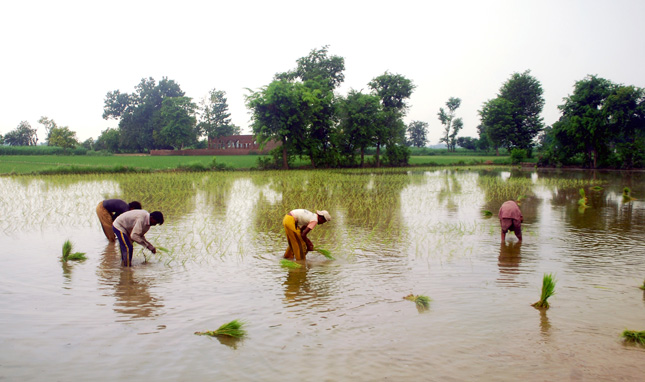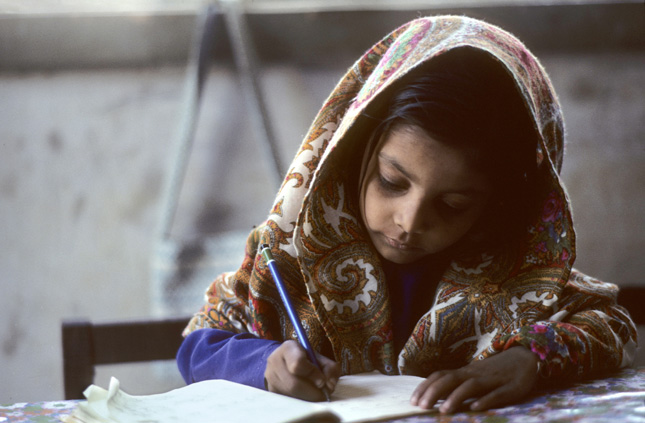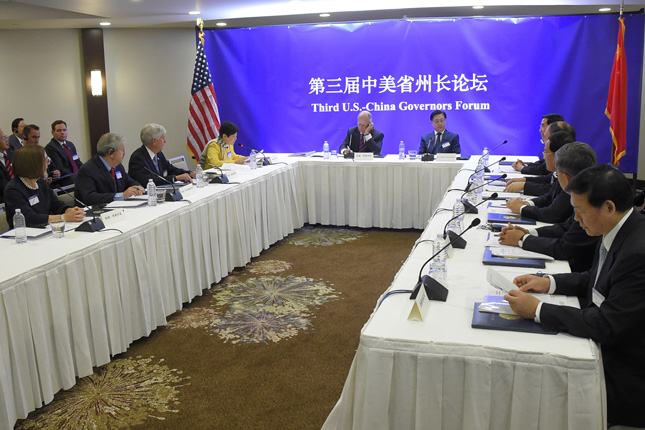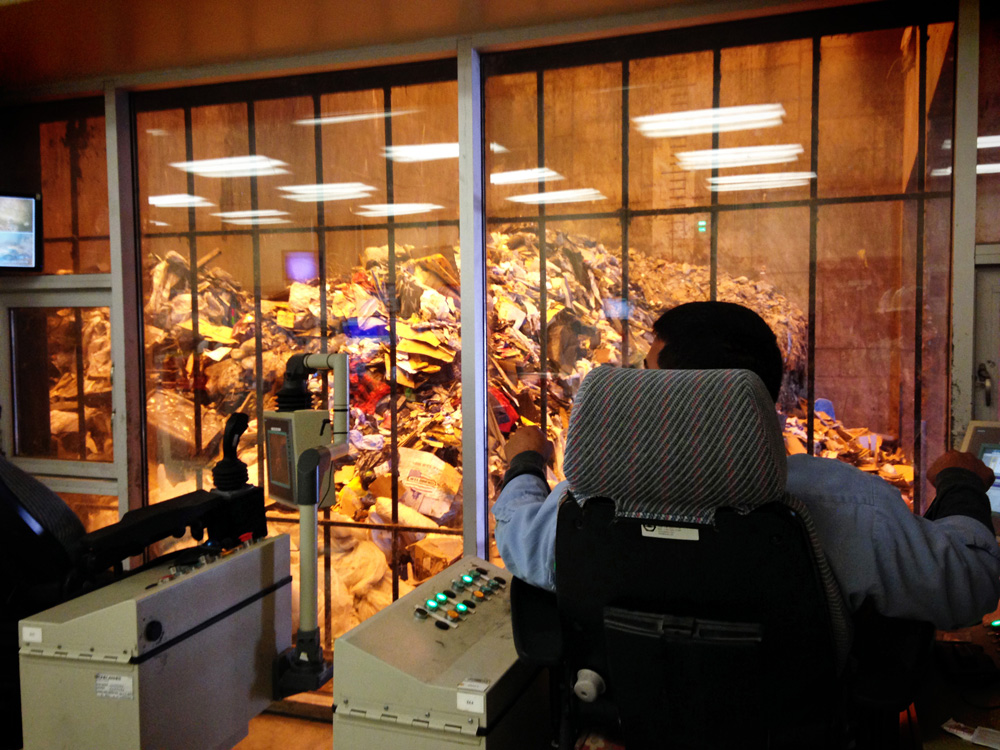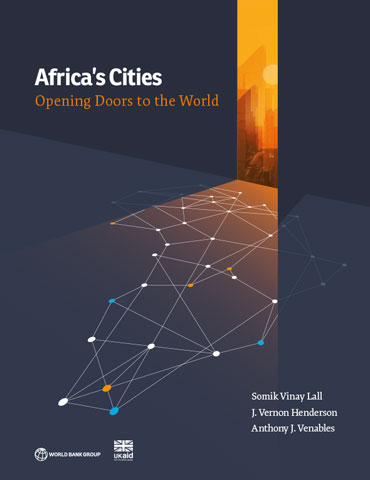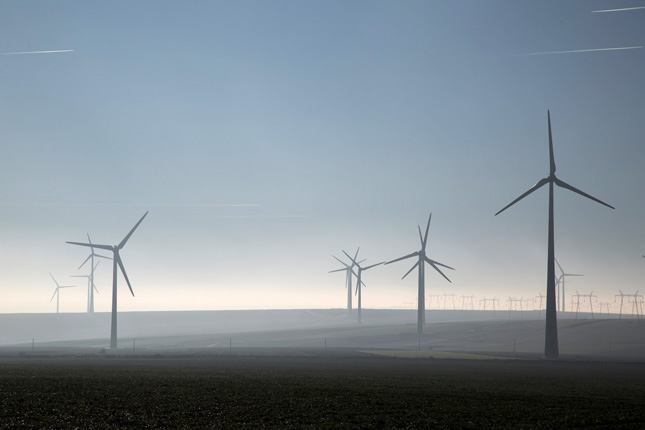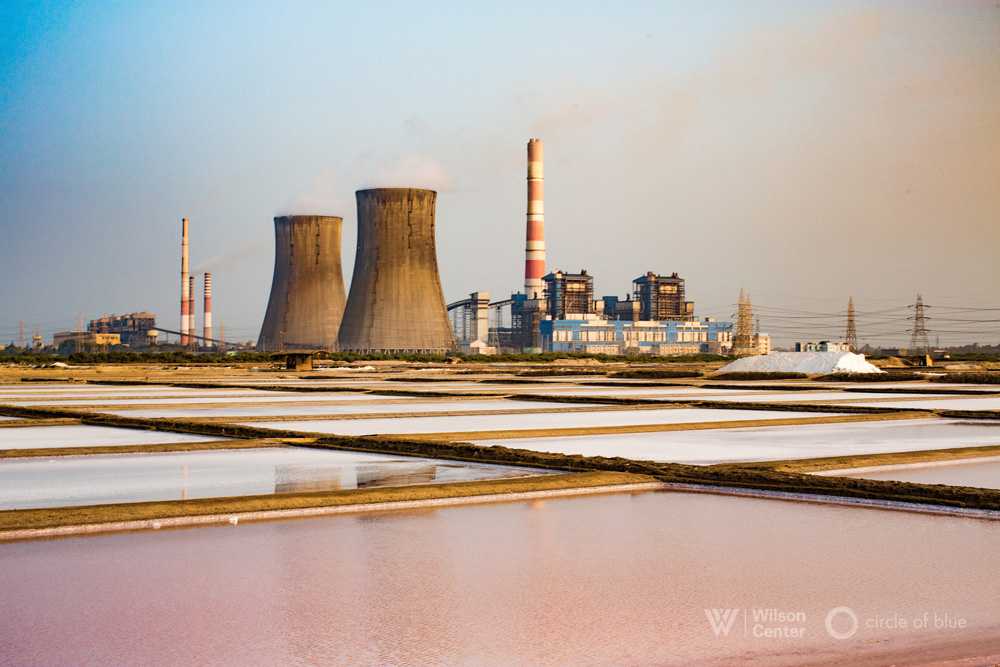-
Saving for a Rainless Day: Microfinancing for Resilience
›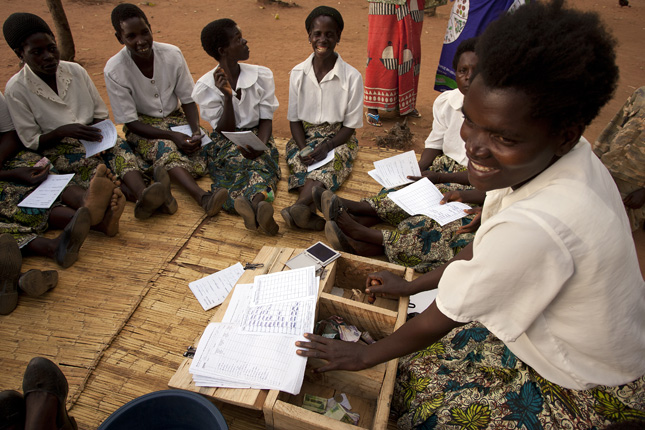
“The sooner you save, the better off you’ll be in life, wherever you live, at whatever age you start,” said Sophie Romana, director of community finance at Oxfam America: “Saving is the key.” Microsavings groups—informal community-based financial pools–can help vulnerable communities build resilience, said representatives from support organizations CARE International, Oxfam America, and the Grameen Foundation at a Wilson Center event on June 29, 2017.
-
The Perils of Denial: Challenges for a Water-Secure Pakistan
›
Pakistan is South Asia’s fifth most vulnerable country in terms of water availability, and Karachi is the sixth most water-stressed city in the world. Predictions indicate that the country will face absolute water scarcity (insufficient water supply to meet demand) as soon as 2025. While population and demand for water steadily increase, freshwater quantity and quality are decreasing.
-
The Economic Costs of Child Marriage
›
“It’s essentially an issue of a lack of viable alternatives,” said Quentin Wodon, lead economist for the World Bank’s Education Global Practice at a recent event on child marriage at the World Bank. “We have to create those alternatives.” Wodon co-presented the results of a new research study, “At What Cost? The Economic Impacts of Child Marriage,” by the World Bank Group and the International Center for Research on Women (ICRW).
-
Global Climate Cooperation, Post-Paris: Can Subnational Agreements Pick Up the Slack?
›
At the G20 Summit in Hamburg early July 2017, leaders of the world’s strongest economies issued a joint statement reaffirming their commitment to the Paris Climate Accord. President Trump—the lone outsider—had announced in early June he would withdraw the United States from the agreement. As China doubles down on meeting its Paris targets, the chasm between the world’s two largest emitters and energy consumers continues to widen as previous joint efforts to curb carbon emissions fade away. Post-summit headlines focusing on the “G19” nations suggest America has abandoned international cooperation against climate change. But some U.S. cities and states are continuing the climate fight with their Chinese counterparts.
-
No Room for Waste: Honolulu’s Sludge Plant Points Toward More Sustainable Urban Development
›HONOLULU – Sludge. The final, unwanted byproduct of a toilet flush. The semi-solid stuff that even wastewater treatment plants send packing to the landfill. Unseen in the steel pipes snaking high on the exterior of Honolulu’s H-POWER plant, sludge is injected into a massive boiler where it joins the city’s trash in a roaring inferno. From the gravel lot outside, it all seems very antiseptic and smells less than a stroll past the neighborhood dumpster. But the 70-megawatt waste-to-energy facility is a workhorse, processing as much as 2,000 tons of refuse each day from Oahu’s 1 million residents. All told, it generates up to 10 percent of the electricity needed to power this Pacific island.
-
Urban Africa: Opening Doors, Greening Cities
›Cities in sub-Saharan Africa are growing rapidly. But will this
 lead to economic growth? According to a recent World Bank report, Africa’s Cities: Opening Doors to the World, the low level of regional and international trade is one of the main reasons why African cities are relatively poor.
lead to economic growth? According to a recent World Bank report, Africa’s Cities: Opening Doors to the World, the low level of regional and international trade is one of the main reasons why African cities are relatively poor. -
Environmental Sustainability, Does It Make Dollars and Sense?
›
While governments will play the central role in delivering the Sustainable Development Goals, they can’t do it without the private sector, said experts at the Wilson Center on April 12.
-
Tamil Nadu Leads India’s Historic Turn to the Sun and Wind
›MADURAI, India – Before he agreed to serve as minister of state and take command of his country’s mammoth energy production and distribution sector, Piyush Goyal developed one of India’s most spirited political careers. “A man of ideas and competence,” according to First Post, a prominent news organization, Goyal is an accountant and lawyer who rose to the peak of Indian economic and political culture as an investment banker, member of parliament, and treasurer of the ruling Bharatiya Janata Party.
Showing posts from category economics.


